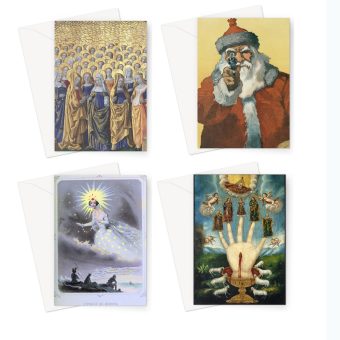Bored with Christmas cards, Richard de la Mare (1901–86), son of the poet Walter de la Mare and director of production at London-based publisher Faber & Gwyer (later Faber and Faber), hit upon the idea of sending poetry pamphlets, each featuring the work of well-known writers and artists. His customers would get them for free in place of cards, and anyone else could buy them for a shilling each.
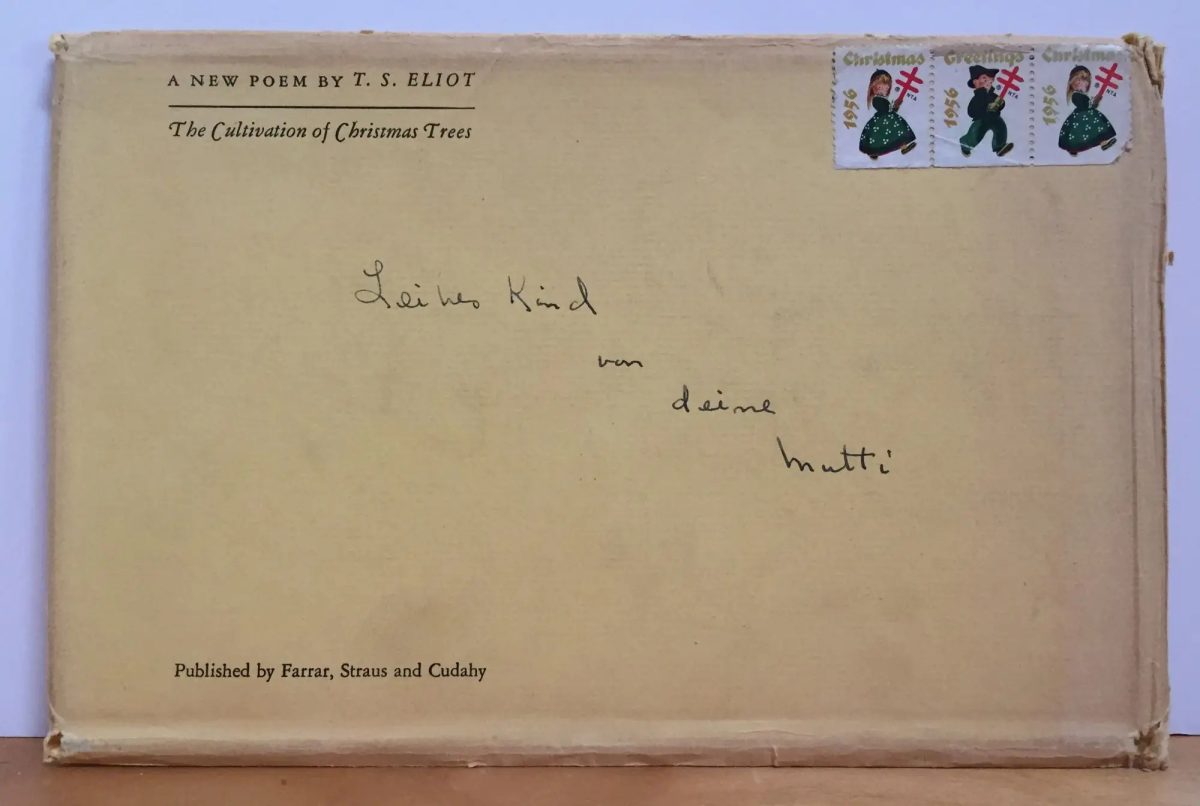
Via JMichaelBooks
From 1927-1954, T. S. Eliot (September 26, 1888–January 4, 1965) – who in 1925 had became a poetry editor at the publisher after a career in banking – wrote six poems for the project: The Journey of the Magi (1927), A Song for Simeon (1928), Animula (1929), Marina(1930), Triumphal March (1931), and The Cultivation of Christmas Trees (1954), with later with designs and decorations by noted Italian-Jewish artist Enrico Arno. Eliot was 66 at the time this poem was written in 1954 and had been an Anglican since 1927.
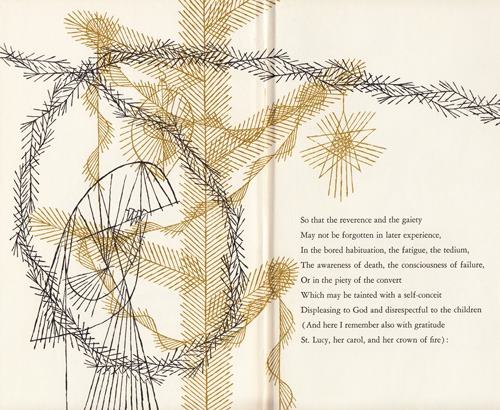
Named in tribute to Wiliam Shakespeare’s sprite, the Ariel poems each addressed the Christmas holiday or a seasonal theme. The likes of Vita Sackville-West, G. K. Chesterton, Edith Sitwell, Thomas Hardy, D. H. Lawrence, Siegfried Sassoon and W. B. Yeats all made contributions.
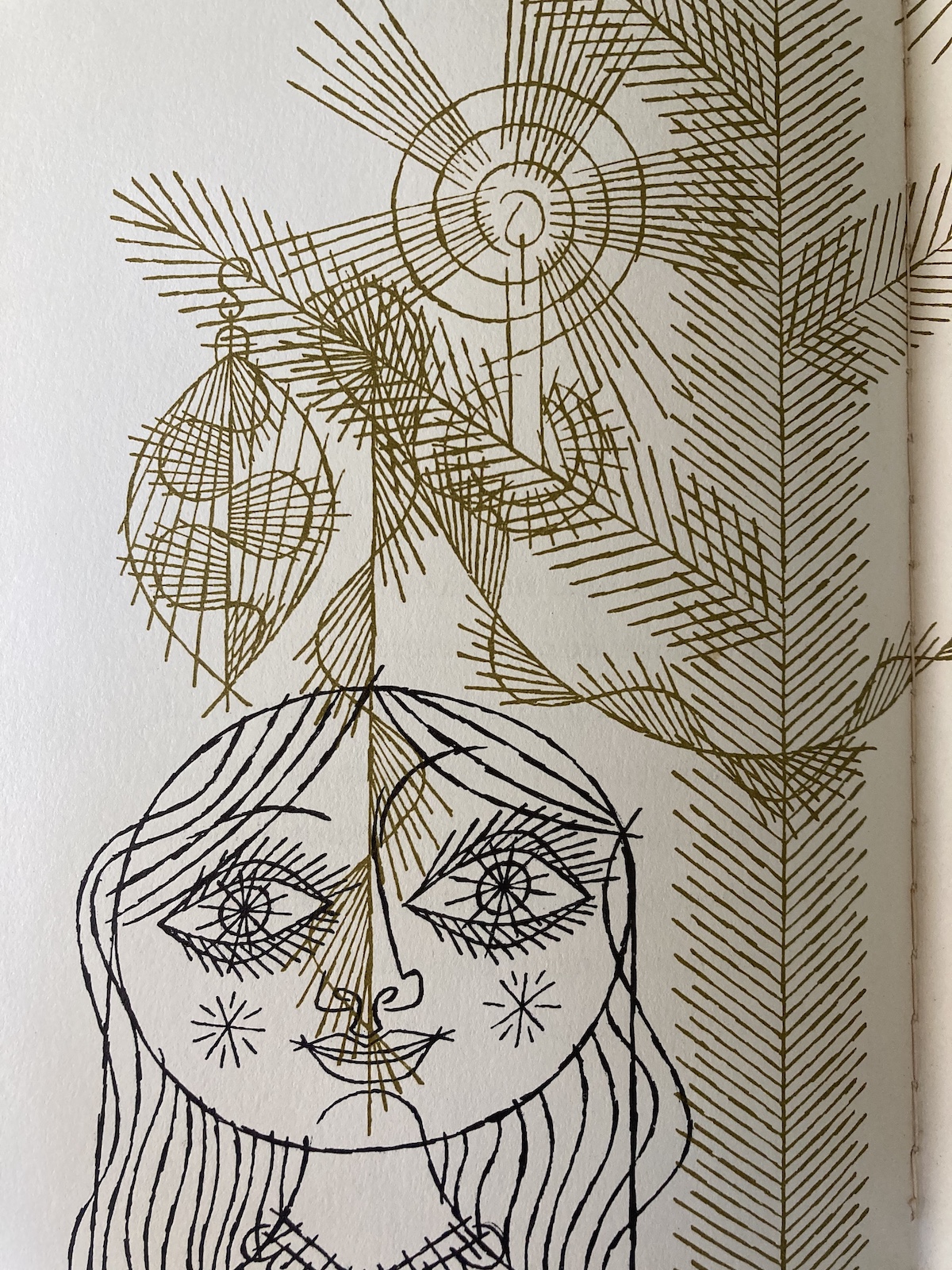
The Cultivation of Christmas Trees by T.S. Eliot
There are several attitudes towards Christmas,
Some of which we may disregard:
The social, the torpid, the patently commercial,
The rowdy (the pubs being open till midnight),
And the childish – which is not that of the child
For whom the candle is a star, and the gilded angel
Spreading its wings at the summit of the tree
Is not only a decoration, but an angel.The child wonders at the Christmas Tree:
Let him continue in the spirit of wonder
At the Feast as an event not accepted as a pretext;
So that the glittering rapture, the amazement
Of the first-remembered Christmas Tree,
So that the surprises, delight in new possessions
(Each one with its peculiar and exciting smell),
The expectation of the goose or turkey
And the expected awe on its appearance,So that the reverence and the gaiety
May not be forgotten in later experience,
In the bored habituation, the fatigue, the tedium,
The awareness of death, the consciousness of failure,
Or in the piety of the convert
Which may be tainted with a self-conceit
Displeasing to God and disrespectful to children
(And here I remember also with gratitude
St.Lucy, her carol, and her crown of fire):So that before the end, the eightieth Christmas
(By “eightieth” meaning whichever is last)
The accumulated memories of annual emotion
May be concentrated into a great joy
Which shall be also a great fear, as on the occasion
When fear came upon every soul:
Because the beginning shall remind us of the end
And the first coming of the second coming.
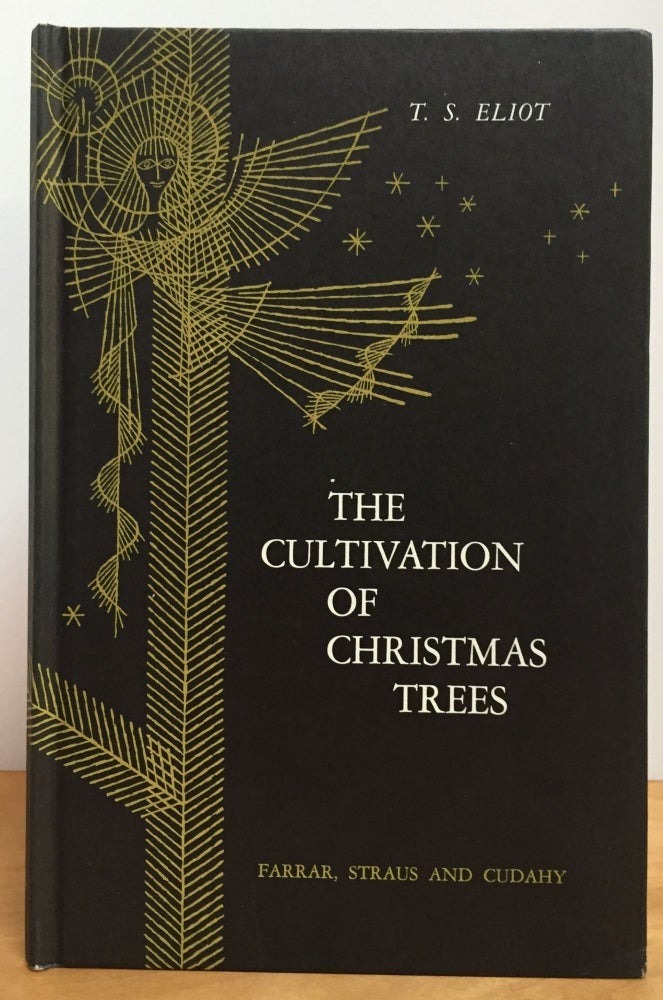
By way of bonus, here’s Eliot reading another of his works form the series, Journey of the Magi:
“I think this is the first time I’ve ever read any of my own poems over the radio for either an American or an English audience, though I’ve done so once or twice for overseas services…I shall now take one of my ‘Ariel’ poems. ‘Ariel Poems’ was the title of a series of poems which included many other poets as well as myself. These were all new poems which were published during four or five successive years as a kind of Christmas card. Nobody else seemed to want the title afterward so I kept it for myself, simply to designate four of my poems which appeared in this way. ‘Journey of the Magi’ is obviously a subject suitable for the Christmas season.”
Would you like to support Flashbak?
Please consider making a donation to our site. We don't want to rely on ads to bring you the best of visual culture. You can also support us by signing up to our Mailing List. And you can also follow us on Facebook, Instagram and Twitter. For great art and culture delivered to your door, visit our shop.
